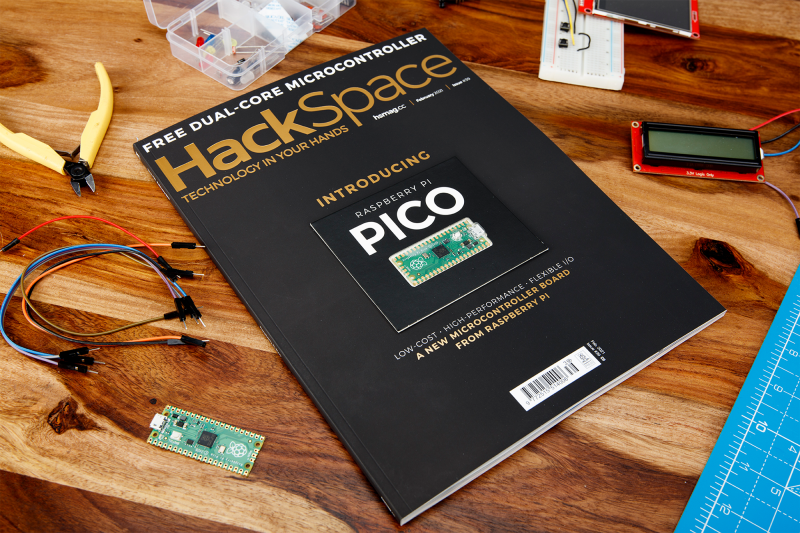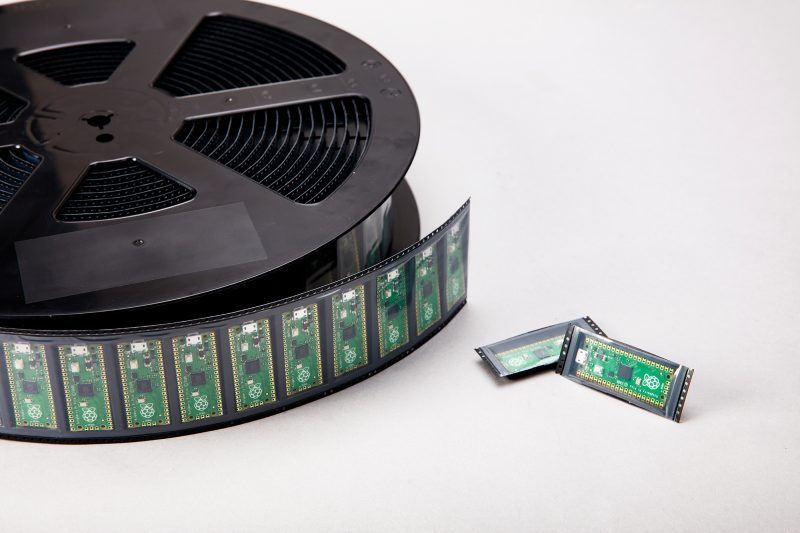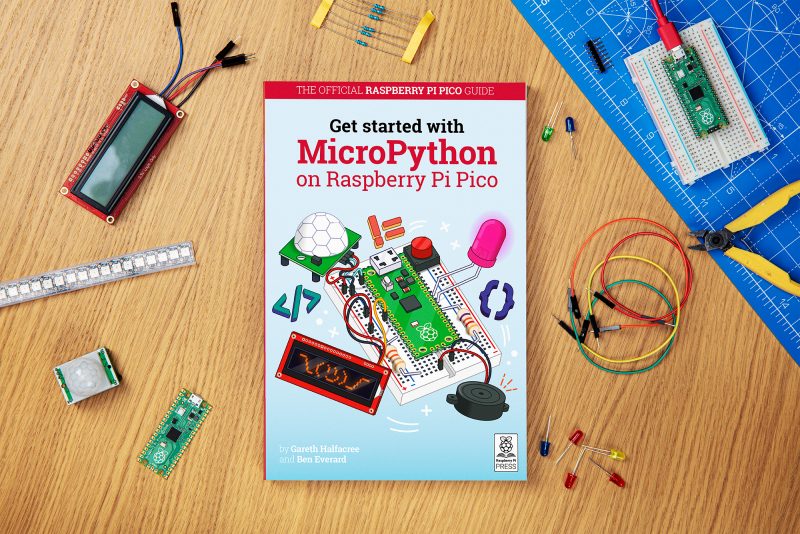

The Raspberry Pi Foundation’s tiny computers can be used for anything from homemade cameras to cucumber sorters, and now, the group is branching out into microcontrollers and custom silicon. The Raspberry Pi Pico is the first step. It’s a new $4 microcontroller that’s smaller than the average Pi, features a custom chip powerful enough to be used in machine learning projects (according to The Raspberry Pi Foundation), and is on sale now.
If you want to get one of this microcontroller you can buy it here from Aliexpress.
The Raspberry Pi takes care of heavyweight computation, network access, and storage, while the microcontroller handles analogue input and low-latency I/O and, sometimes, provides a very low-power standby mode.
In a first for the microcomputer maker, the Pico is powered by a custom chip designed in house called the RP2040. The Pico board features the new chip, 2MB of flash memory, a clickable button, and a Micro USB Type B port. Here are the RP2040’s full specs:
Dual-core Arm Cortex-M0+ @ 133MHz
264KB (remember kilobytes?) of on-chip RAM
Support for up to 16MB of off-chip Flash memory via dedicated QSPI bus
DMA controller
Interpolator and integer divider peripherals
30 GPIO pins, 4 of which can be used as analogue inputs
2 × UARTs, 2 × SPI controllers, and 2 × I2C controllers
16 × PWM channels
1 × USB 1.1 controller and PHY, with host and device support
8 × Raspberry Pi Programmable I/O (PIO) state machines
USB mass-storage boot mode with UF2 support, for drag-and-drop programming

Those specs might go in one ear and out the other, but the best way to illustrate the potential for a new Raspberry Pi product is to see it used in something cool. The Raspberry Pi Foundation is partnering with companies like Arduino, Adafruit, and Pimoroni to integrate the new RP2040 chip into other boards and gadgets. There’s a whole list in the blog post announcing the Pico, but a few notable ones are Pimoroni’s PicoSystem game console, Adafruit’s Feather RP 2040 board, and the Arduino Nano RP2040 Connect.
The Raspberry Pi Pico is available now from approved resellers for $4. The microcontroller will also be given away for free in February issues of HackSpace magazine.
Raspberry Pi Pico is designed as our low-cost breakout board for RP2040. It pairs RP2040 with 2MB of Flash memory, and a power supply chip supporting input voltages from 1.8-5.5V. This allows you to power your Pico from a wide variety of sources, including two or three AA cells in series, or a single lithium-ion cell.
Pico provides a single push button, which can be used to enter USB mass-storage mode at boot time and also as a general input, and a single LED. It exposes 26 of the 30 GPIO pins on RP2040, including three of the four analogue inputs, to 0.1”-pitch pads; you can solder headers to these pads or take advantage of their castellated edges to solder Pico directly to a carrier board. Volume customers will be able to buy pre-reeled Pico units: in fact we already supply Pico to our Approved Resellers in this format.
The Pico PCB layout was co-designed with the RP2040 silicon and package, and we’re really pleased with how it turned out: a two-layer PCB with a solid ground plane and a GPIO breakout that “just works”.


Our ambition with RP2040 wasn’t just to produce the best chip, but to support that chip with the best documentation. Alasdair Allan, who joined us a year ago, has overseen a colossal effort on the part of the whole engineering team to document every aspect of the design, with simple, easy-to-understand examples to help you get the most out of your Raspberry Pi Pico.
You can find complete documentation for Raspberry Pi Pico, and for RP2040, its SDK and toolchain, here.